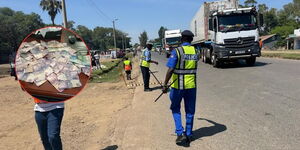Injectable drugs have been linked to the rise of HIV infections in the country, with Kenya ranking sixth globally in AIDS-related deaths.
According to data from the National Syndemic Disease Control Council (NSDCC) released early this year, approximately 26,000 Kenyans used injectable drugs, and 18,400 died of AIDS.
Speaking at a pre-conference on Thursday, NSDCC CEO Ruth Masha faulted abuse of injectable drugs as a major contributor to the high number of infections in the country.
“One of the challenges we are experiencing is HIV being transmitted in drug use practices by people who inject drugs. This practice is criminalised, and for them to come out, they need to get to a space where there is a legal framework to be able to access treatment,” Masha stated.
Data from the report further shows that counties with a prevalence in the use of injectable drugs include Kwale county, with 2,712 cases, Nairobi with 9,722, and Mombasa reported 2,599 cases. Kisumu, Kiambu and Murang’a recorded 408,592 and 211 respectively.
Masha, however, acknowledged that Kenya had made progress by recording a drop in the annual new infections from 100,000 in 2013 to 22,000 new infections in 2022.
The government has been on the frontline in the fight against HIV/AIDS, with President William Ruto promising to end the prevalence of the disease in children by 2027 as part of the partnership with the Global Fund.
Speaking at the Kenya National Library Service on Thursday, in Nairobi, during the President’s Emergency Plan for Aids Relief (PEPFAR) 2023 20th Anniversary Celebration in Kenya, William Ruto stated that the government will progressively increase domestic funding towards HIV management.
“Over the past two years, we have increased our financial injection as the government into the HIV commodity pipeline by Ksh 1 billion to prevent supply disruptions, ” Ruto stated.
The Ministry of Health, in observance of World AIDS Day, celebrated on December 1 every year, emphasised the pivotal role communities play in the fight against HIV/AIDS, echoing this year's theme, Let Communities Lead.
“Communities are the pulse of change in addressing the complexities of HIV/AIDS. Their collective knowledge, resilience, and advocacy drive crucial advancements in prevention, treatment, and support systems. Empowering communities isn't merely a mantra but a fundamental approach in shaping sustainable, inclusive responses,” MoH stated.












